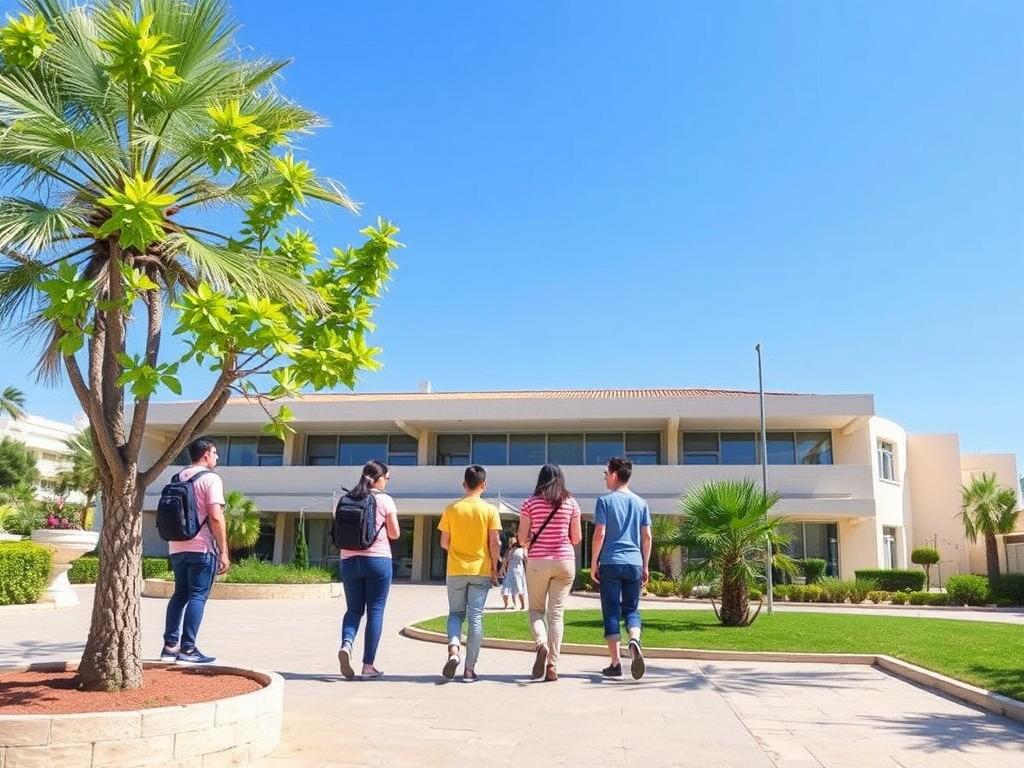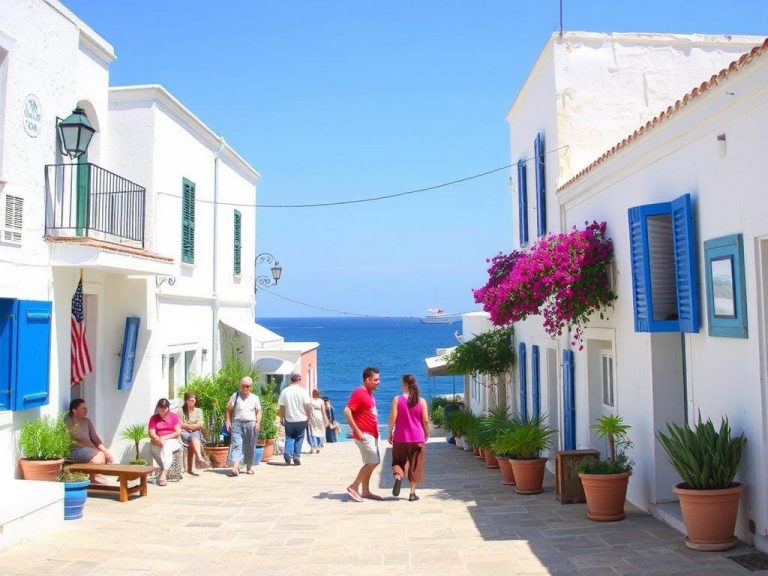International Education in Cyprus: School Options for Expat Families
The Growing Demand for International Schools in Cyprus
Cyprus has witnessed considerable growth in its international education sector in recent years, driven largely by the increasing number of expatriate families relocating to the island. With its strategic location, welcoming atmosphere, and high living standards, Cyprus has become an attractive destination for professionals and their families from around the world. These families often seek robust educational environments that provide international curricula, cultural diversity, and global recognition, creating a burgeoning demand for international schools Cyprus offers.
The island’s education system caters to a diverse population, including local Cypriot children, EU nationals, and non-European expatriates. Many parents prioritize enrolling their children in schools that offer globally accepted curricula, such as the British, American, or International Baccalaureate (IB) programs. This preference stems from the desire to ensure a smooth transition in different academic environments worldwide and to facilitate university admissions abroad.
Moreover, the government and private entities in Cyprus have acknowledged this demand, leading to a steady increase in the number and variety of international schools, spanning a broad range of curricula and pedagogical approaches. These schools tend to focus not only on academic excellence but also on language acquisition, cultural understanding, and extracurricular development to meet global standards and family expectations.
International schools in Cyprus are evolving rapidly, reflecting the island’s new role as a hub for global families seeking quality education and cultural integration.
Overview of Education Options Cyprus Provides
The education landscape in Cyprus presents several pathways for expatriate families, structured around the public education system, private local schools, and international schools. Understanding these diverse education options Cyprus offers is crucial for families planning their children’s academic future.
The public education system in Cyprus follows the Greek curriculum, mandated by the Ministry of Education. It is free of charge and primarily serves Cypriot children or residents fluent in Greek. However, the language barrier and curriculum specifics often lead expatriate families to seek alternatives outside the public system.
Private local schools (non-international) often provide education in Greek but may also offer programs taught in English, catering mostly to local families aspiring for bilingualism. However, these schools might not align fully with international standards or curricula required for global higher education pathways.
International schools Cyprus features are distinctly designed for expatriates, with an emphasis on English as a medium of instruction and internationally recognized curricula. They attract a multinational student body, providing an educational experience consistent with global standards and facilitating easy transitions across countries.
When evaluating education options Cyprus has, families must consider several factors such as language of instruction, curriculum relevance, school fees Cyprus charges, teacher qualifications, class size, and the school’s extracurricular offerings. These elements together shape the quality and appropriateness of education for expat children.
Choosing the right education option in Cyprus depends on language needs, curriculum preferences, and family mobility plans—key for long-term academic success.
Curriculum Comparison Cyprus: Key International Curricula Explained
The choice of curriculum is often the most decisive factor expat families consider when selecting an international school in Cyprus. Understanding the strengths and structures of each curriculum type helps parents align their children’s education with future academic and career goals.
Among the most prevalent curricula offered in international schools Cyprus provide are the British National Curriculum, the American Curriculum, and the International Baccalaureate (IB). Each presents unique attributes, assessment methods, and progression systems.
British National Curriculum
This curriculum, widely popular in Cyprus, follows the framework used in England and Northern Ireland. It is structured into Key Stages (1 to 5), culminating in GCSEs and A-level examinations, which hold significant weight in university admissions worldwide, especially in the UK and Commonwealth countries. Schools following the British system emphasize core subjects like English, Mathematics, and Sciences, with expanded offerings in humanities and arts.
British international schools in Cyprus often integrate additional enrichment programs, including language acquisition and extracurricular activities, to nurture well-rounded development. The familiar structure appeals to British expatriates and others aiming at UK higher education pathways.
American Curriculum
American curriculum schools in Cyprus align their standards with the U.S. education system, prioritizing a broad-based education with continuous assessment rather than end-of-stage exams. Students earn a high school diploma upon graduation and can take advantage of Advanced Placement (AP) courses to earn college credits.
This curriculum focuses on flexibility, allowing students to choose electives alongside traditional subjects, supporting a more personalized education. It suits families aiming for universities in the United States or countries recognizing the American diploma.
International Baccalaureate (IB)
The IB curriculum is recognized globally for its academic rigor and holistic approach, including the Primary Years Program (PYP), Middle Years Program (MYP), and Diploma Program (DP). It encourages critical thinking, intercultural awareness, and community engagement—traits valued by universities worldwide.
IB schools in Cyprus often exhibit diverse student populations and encourage multilingualism. Their assessment emphasizes projects, essays, and exams, providing an alternative to purely exam-driven systems. The IB Diploma is particularly valued for its recognition across Europe, North America, and beyond.
Table: Curriculum Comparison Cyprus Focus
| Curriculum | Assessment Method | Structure & Progression | University Recognition | Language of Instruction |
|---|---|---|---|---|
| British National Curriculum | Standardized exams (GCSEs, A-levels) | Key stages; exam-focused; clear academic milestones | UK, Commonwealth, Europe, globally accepted | English |
| American Curriculum | Continuous assessment; portfolio; AP exams optional | Flexible credit accumulation; diploma awarded upon completion | USA, Canada, worldwide (recognized) | English |
| International Baccalaureate (IB) | Coursework, essays, oral presentations, exams | Three programs (PYP, MYP, DP); interdisciplinary focus | Worldwide, highly regarded for university admissions | English (mostly), plus multilingual options |
Curriculum choice aligns directly with a family’s educational priorities and future destinations, making understanding options critical in Cyprus.
Understanding School Fees Cyprus: Financial Considerations for Expats
One of the primary concerns for expat families assessing international schools in Cyprus is the structure and scale of school fees Cyprus imposes. While public education in Cyprus is free and subsidized, international schools operate primarily on tuition fees, which vary significantly depending on the institution, curriculum, facilities, and services included.
Typically, school fees Cyprus charges can be broken down into several categories: registration/enrollment fees, annual tuition, examination fees, extracurricular activity charges, and sometimes transportation and lunch fees. These components collectively influence the total cost parents must budget for.
Annual tuition fees in international schools Cyprus range widely. On average, British curriculum schools might charge between €6,000 to €15,000 per year, depending on the grade level and institution prestige. American curriculum schools tend to be in a similar range but might offer more flexible payment structures or scholarship opportunities. IB schools, due to their comprehensive programs and accreditation demands, can be at the higher end of the fee spectrum.
Additional costs outside tuition also need to be factored in, especially for families seeking full-time extracurricular engagement, after-school care, or transport arrangements. For those planning long-term stays in Cyprus, considering the total ownership cost of education is essential in financial planning.
School fees Cyprus demands can impact family budgets substantially, necessitating careful financial planning when selecting the ideal international school.
Extra-Academic Factors Influencing School Choice in Cyprus
Beyond curriculum and fees, various qualitative factors influence expatriate families’ school choices in Cyprus. These include location, class sizes, teacher qualifications, extracurricular programs, language support, and school culture.
Location matters, as parents often prefer schools with convenient commuting times from their residence. Urban centers like Nicosia, Limassol, and Larnaca host the largest concentration of international schools, but some families opt for schools closer to quieter residential areas or coastal communities.
Class size impacts personalized attention and learning outcomes. Many international schools Cyprus boasts maintain small to medium class sizes, generally ranging from 10 to 20 students, fostering close teacher-student interaction, which is especially important for expatriate children adapting to new environments.
Teacher expertise is often internationally certified, with many educators holding qualifications from the countries whose curricula they deliver. Stability in staff retention can also reflect the quality of the educational environment, providing continuity for transient expat families.
Extracurricular offerings such as sports, music, drama, and STEM clubs enhance social development and foster talents outside the classroom. Notably, international schools Cyprus host often emphasize multilingualism, offering extensive English as an Additional Language (EAL) or other language acquisition support.
School culture and community create a vital support network for expatriate families. Inclusion, diversity, and multicultural understanding define most international schools, adding emotional and social benefits critical to successful expatriate living.
The best school fit balances curriculum, costs, and community, ensuring both academic achievement and personal well-being for expat children in Cyprus.
Emerging Trends and Future Outlook for International Education in Cyprus
International education in Cyprus continues to evolve under the influence of global educational trends, technological integration, and demographic shifts. The demand for international schools Cyprus hosts is expected to grow as the island further positions itself as a regional hub for business, tourism, and international living.
One observable trend is the increasing integration of digital technologies in teaching, learning, and administration. Schools are incorporating interactive learning platforms, virtual laboratories, and hybrid learning models to enhance engagement and resilience, especially after the global experience during the COVID-19 pandemic.
Another trend is an emphasis on sustainable education and global citizenship, reflected in the curricula of newer and re-accredited schools aiming to inspire environmental stewardship alongside academic knowledge.
The expansion of bilingual and multilingual programs is also noteworthy, addressing both local integration and global readiness. Language diversity facilitates communication within the expatriate community and prepares students for higher education in multilingual environments.
With Cyprus continuing to attract international businesses, diplomatic missions, and skilled workers, international schools are poised to respond by widening their offerings, scholarship programs, and community engagement initiatives. This dynamic educational environment presents promising prospects for expatriate families.
The future of international education in Cyprus is marked by innovation, inclusivity, and global interconnectivity—key factors for expat families to consider today.
Finding the Right School: Making Informed Decisions
The process of selecting the optimal international school in Cyprus demands deliberate research and reflection. Families should prioritize visiting prospective schools, meeting academic and administrative staff, and understanding each institution’s philosophy and environment.
Gathering firsthand opinions from current students and parents can provide invaluable insights into daily experiences, cultural dynamics, and support systems. Additionally, consulting with relocation experts or education consultants who specialize in Cyprus can streamline the decision-making process.
It is imperative to gain clarity on admission procedures, availability of places, waiting lists, and timelines, as international schools in Cyprus can experience high demand and limited capacity at certain grade levels.
Ultimately, aligning curriculum choice with long-term academic plans, balancing financial considerations, and assessing the cultural fit within the school community are the pillars of a successful selection process. The optimal school will not only deliver academic quality but also nurture confidence, resilience, and intercultural competence in expatriate children.
Thorough preparation, school visits, and community feedback are essential steps to secure the best educational future for expat families in Cyprus.
What Every Expat Family Should Know Before Enrolling
Moving to Cyprus and selecting an international school presents logistical and emotional challenges. Families should prepare for language adaptation, cultural differences, and administrative requirements well in advance.
Understanding visa and residency regulations tied to schooling eligibility is essential, as well as acquiring necessary documentation like previous transcripts, immunization records, and letters of recommendation. Navigating these bureaucratic aspects smoothly can prevent enrollment delays.
Many schools offer orientation programs, language support, and counseling services designed explicitly for expatriate students to ease transitions. Engaging with these resources boosts academic and social integration.
Parents are encouraged to foster open communication with school administrations and teachers to stay informed about their child’s progress and any potential difficulties, facilitating timely interventions when necessary.
Proactive engagement with schools and preparation for cultural differences significantly smoothen the transition for expat families in Cyprus.
Cyprus International Schools: Essential Resources and Contacts
Families seeking international schools Cyprus offers should utilize available resources to compare options, contact admissions offices, and schedule visits. Online platforms aggregate pertinent information, but direct communication with schools remains the most reliable source.
Key resources include education directories specializing in Cyprus, expatriate forums, and the respective embassies’ educational departments, which sometimes provide guidance or lists of accredited schools.
International school associations and local expat groups can also facilitate introductions and share personal experiences, providing a clearer picture of expectations and realities.
For practical arrangements, understanding transportation options, school calendars, and holiday schedules is beneficial in planning family life around schooling commitments.
Utilizing multiple informed resources supports confident decision-making in the dynamic landscape of Cyprus international education.
Your Path Forward: Unlocking Quality International Education in Cyprus
Choosing an international school in Cyprus is a significant step that directly affects a child’s educational trajectory and family wellbeing. The growing ecosystem of international schools Cyprus accommodates reflects the island’s dynamic cultural and economic environment, providing solid options for expatriate families with diverse needs.
Evaluating education options Cyprus presents—spanning curricula, language, fees, and extracurricular offerings—equips families to make decisions grounded in clarity and confidence. Beyond the academic components, the interpersonal and adaptive dimensions of schooling abroad are pivotal for robust, holistic development.
By approaching selection systematically, seeking out tailored information, and prioritizing both educational quality and community fit, expatriate families can secure a pathway that not only meets academic demands but also nurtures global citizenship and lifelong learning.
Cyprus offers rich international education options that can open doors to global opportunities—choosing wisely today lays the foundation for tomorrow’s success.
Frequently Asked Questions
- What types of international schools are available in Cyprus?
Cyprus hosts schools offering British, American, and International Baccalaureate curricula, among others, serving diverse expatriate needs. - How do school fees Cyprus charges compare across curricula?
Fees vary, with British and American curriculum schools generally ranging between €6,000 and €15,000 annually, while IB schools tend to be toward the higher end due to program complexity. - Is the curriculum in international schools recognized by universities abroad?
Yes, international schools in Cyprus follow curricula recognized worldwide, facilitating admissions in Europe, North America, and beyond. - Are there language support services for non-native English speakers?
Most international schools in Cyprus offer English as an Additional Language (EAL) support and sometimes additional language instruction to assist non-native speakers. - Can my child transfer easily between international schools in Cyprus or elsewhere?
Due to globally standardized curricula, transfers between international schools in Cyprus and other countries are generally smooth if academic records are up to date. - How early should I start the application process for international schools in Cyprus?
It is advisable to begin at least 6-12 months before enrollment to accommodate admission tests, interviews, and waiting lists. - Do international schools in Cyprus offer extracurricular activities?
Yes, schools typically provide a broad range of activities including sports, arts, and STEM clubs to support holistic development.







